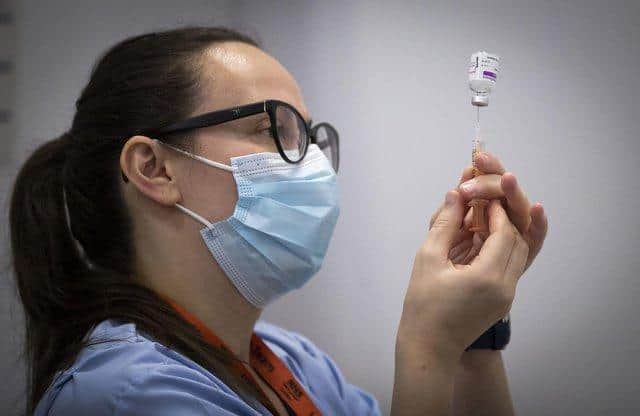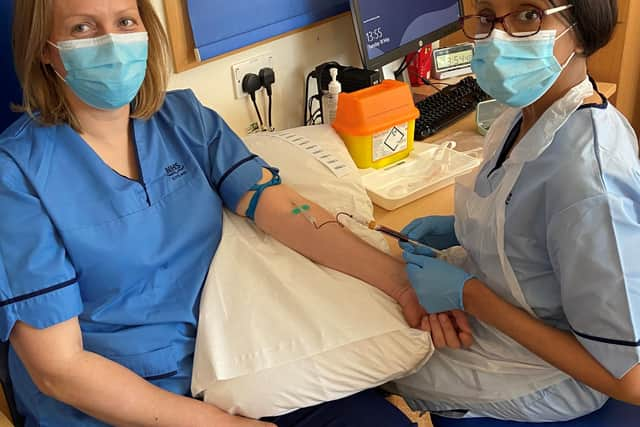NHS Lothian pioneers Covid-19 research in Scotland
and live on Freeview channel 276
Let us know what you think and join the conversation at the bottom of this article.
NHS Lothian is the biggest contributor to the SIREN study, a UK-wide research project launched in May, 2020 and led by Public Health England.
Working in partnership with 135 NHS Trusts and 44,000 members of frontline staff, the SIREN study regularly tests patient-facing healthcare workers for the presence of the virus and antibodies, to determine whether pre-exposure to the virus confers protective immunity.


Advertisement
Hide AdAdvertisement
Hide AdMore than 1,940 doctors, nurses, midwives, healthcare assistants, lab technicians, pharmacists, domestics, porters, and receptionists working in Lothian’s hospitals and care homes have contributed to this study.
The research has already made breakthrough findings including that past Covid-19 infection provides some immunity for at least five months.
Over the coming months researchers will turn their attention to antibody responses over time – if someone has some protection, how long does this last.
This work will help to inform discussions about vaccination and any requirement for individuals to receive boosters, when they would need these and how many booster doses would be required to ensure continued low risk of infection.


Advertisement
Hide AdAdvertisement
Hide AdSam Donaldson is a respiratory research nurse, SIREN researcher and volunteer working at the Royal Infirmary of Edinburgh.
Since October, 2020, she has led a small team of researchers who have recruited 1900 healthcare professionals to contribute to this research.
The team have signed up volunteers working in Edinburgh’s Royal Infirmary, the Western General Hospital, Sick Kids Hospital, the Royal Edinburgh Hospital, St John’s Hospital and other community hospitals.
NHS Lothian was the first health board in Scotland to start recruiting volunteers for this research and Ms Donaldson said she is “very proud” of every individual involved.
Advertisement
Hide AdAdvertisement
Hide AdShe said: “We were the first site in Scotland to get up and running, we started recruiting staff as volunteers at the end of October.
“We have volunteers from all of the central hospitals as well as community hospitals and care homes.
“We are really proud of everyone who has come forward and given up their own time to fill out forms, get blood samples and swabs taken.
“They have all really contributed to finding answers to the crucial questions around Covid-19, answers that will help get us out of this pandemic.”
Advertisement
Hide AdAdvertisement
Hide AdMs Donaldson’s research team also contributed to the Oxford vaccine study last summer which was an incredibly important step towards making a viable vaccine available not just here in the UK, but across the world.
While research from the SIREN study has already helped pave an optimistic path out of Covid-19 mass vaccination remains an important element allowing communities to recover from the virus.
More than 650,000 people in Lothian have now received their first Covid-19 jab and in Scotland, 2,909,156 people had received the first dose of a Covid-19 vaccination - meaning more than 33 per cent of the adult population are fully vaccinated.
And the vaccine rollout is expected to speed up further as under 40-year-olds begin receiving their jab.
A message from the Editor:
Thank you for reading this article. We're more reliant on your support than ever as the shift in consumer habits brought about by coronavirus impacts our advertisers.
If you haven't already, please consider supporting our trusted, fact-checked journalism by taking out a digital subscription.
Comment Guidelines
National World encourages reader discussion on our stories. User feedback, insights and back-and-forth exchanges add a rich layer of context to reporting. Please review our Community Guidelines before commenting.